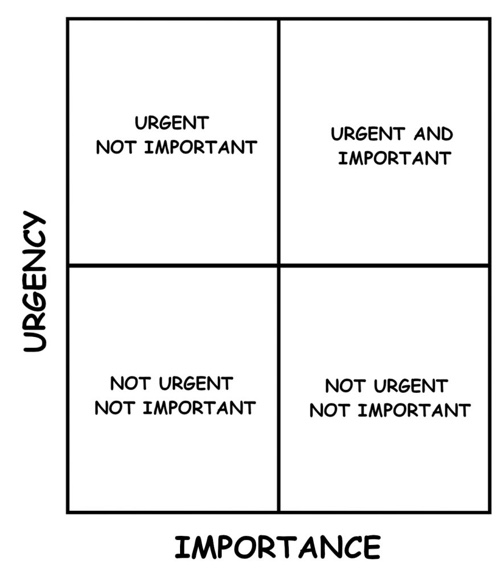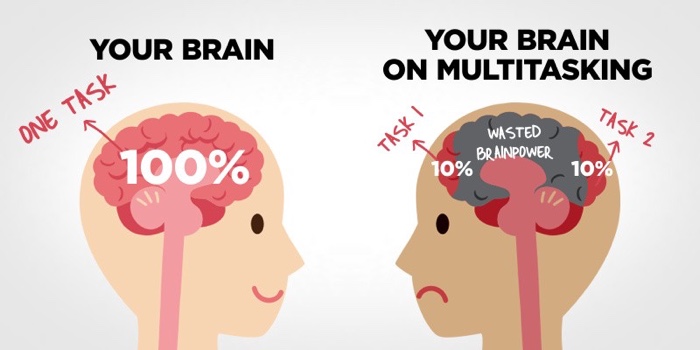Each one of us gets the same 24 hours a day and yet some people accomplish more than the others – why is that the case?
There are many reasons one person may get more done than someone else. Someone could be working on a project they’re more passionate about, or they have bigger incentives to succeed, or something they’re just better suited to doing…
There are a lot of variables, but we’re going to focus on something that we all have a lot of control over, and that’s scheduling.
Scheduling essentially means organizing your time to create the most efficient workflow for yourself. What works best for you may not work best for somebody else, so choosing the best scheduling method to use takes a lot of self-awareness, reflection, and trial and error.
When you make a schedule and you stick to it, you’re taking ownership and control over your time. Even if you don’t stick to it perfectly to the minute, doing your best to adhere to a schedule will drastically improve your productivity and even your enjoyment of your downtime.
Here are some excerpts from a larger piece all about work ethic. These are the excerpts that directly relate to scheduling, so take a look at how other people have found success in their scheduling and see if you can adapt any of these tips and strategies in your own life.
Which method is best? It’s the one you’re going to stick with and use.
Calendaring the Day
Here’s a classic way of calendaring your day by scheduling it into 15-minute blocks. Of course, you can have several blocks of the same activity scheduled in a row, it’s not like you have to jump from task to task every quarter-hour (in fact, that would be very detrimental to focus and productivity since you’re constantly breaking up your flow.)
Include blocks for work, breaks, and family time. Some unexpected things may happen, a bathroom break here and there, a phone call from your favorite aunt. It happens but make sure to resume as quickly as you can, and adjust the rest of your schedule as needed.
Carefully decide what goes on your calendar, this is how you will spend your time. If it’s on the calendar, it must get done no matter what happens. If it’s not on the calendar, don’t spend time on it. Most high-level CEOs have full-time assistants whose job it is to manage their calendars. It makes that big of a difference. It’s not just a matter of adding things to the calendars, either. It’s about what doesn’t get added.
I usually plan out my entire week’s calendar in advance.
Here is a snapshot of my calendar from a typical day:
- 8:30am: Write these articles for Conscioused
- 10:30am: Have a team meeting for Contactout
- 11:00am: Have a team meeting for Conscioused
- 11:30am: This block is free time for admin, email and random tasks
- 12:30pm: An hour for lunch
- 1:30pm: Working on marketing and traffic generation for websites
- 3:30pm: Communicating with my head of sales
- 4:00pm: Some free time thinking and reflecting, and dealing with anything else that may have been brushed aside earlier in the day
- 6:00pm: Finishing off the workday, leaving the rest of my time for me, with everything that needed to get done completed
Try working on your most important task first
Each day there’s a single task that will have the biggest impact on your business, or whatever it is that you’re trying to accomplish. According to Dan Ariely (a psychology professor at Duke), the first two hours of our day are the most productive. So, put 1+1 together and work on the most important task during your most productive hours. This is a scheduling strategy that sets you up for success.
I try to reserve the morning for doing “real work.” I find I can focus more in the morning whereas it’s harder to get focused after having been bombarded by meetings.
–Nathan Blecharczyk, Airbnb cofounder
My most important task for me at the moment is writing articles so I do it first. As something else becomes more important, I’ll shift around my schedule. Your schedule should be fluid. Respect it, take it seriously, but know that it will change in time, too.
Schedule 2 hour time blocks for everything that is important
My two most important things are writing and traffic generation, so I’ve scheduled 2 hour time blocks for each of them. I do this so my day does not get crowded up by urgent tasks.
There are 4 types of tasks:
If I don’t schedule time for everything that is important, then my day is going to be crowded with things that are urgent, but not necessarily important. E.g email, social media messages, “got a minute?” requests from my team.
Things which matter most must never be at the mercy of things which matter least.
–Goethe
TREAT YOUR TIME BLOCKS AS IF THEY WERE APPOINTMENTS WITH YOUR DOCTOR
Don’t miss your time blocks. They are critically important to a solid work ethic and your success.
During your time block, focus solely on the task at hand. Block out distractions. Turn off your email, phone, and social media notifications. Let your family or roommates know it’s work time. If you don’t need the internet, disconnect it too. You can also try using the freedom app to keep you from visiting social media and other distractions.
The reason we block out 2 hours to work on one task is so we can really get into it.
Whether you’re working on smaller blocks, larger ones, or whatever your current task requires… remember that the blocks are everything. They’re the antidote to chaos.
Schedule tip: Multitasking does not work
It takes some time to get familiar with a new task. If we keep switching tasks then we never get deep enough into anything to be productive. This is why, even if you’re making 15-minute blocks in your calendar, you don’t want to be jumping from one thing to another all that often.
Dr Cal Newport is the author of the book Deep Work and he explains, “your attention doesn’t immediately follow – a residue of your attention remains stuck thinking about the original task.”
That’s why it’s better to spend 2 hours working on just one thing. Feel free to take a break in between the 2 hours for 10min to recharge. When you jump around from one task to another, you’re never getting into a state of deep focus or flow.
Hopefully, you now have some new ideas of ways to arrange and manage your schedule in order to accomplish your most important goals.




